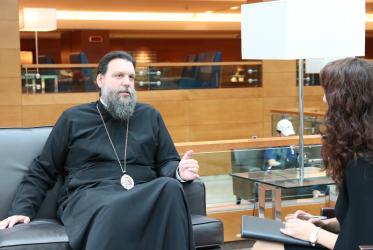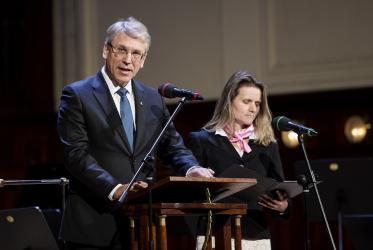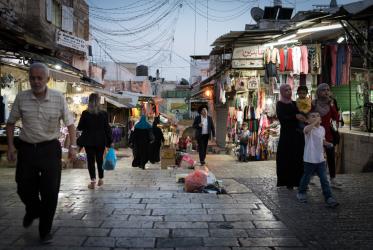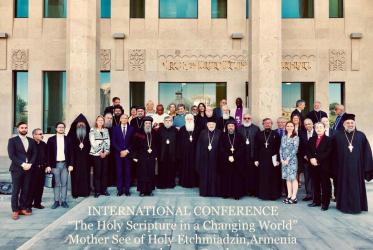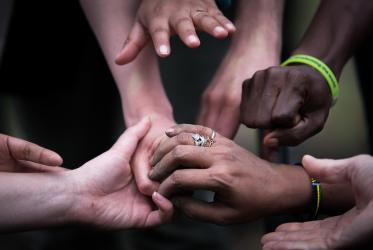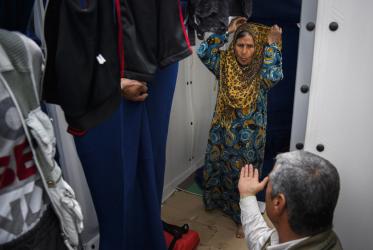Displaying 41 - 60 of 127
Human fraternity is a divine calling, says WCC general secretary
03 February 2019
Fr Alexi - a peacemaker in Syria
21 December 2018
WCC general secretary visits churches in Czech Republic
17 December 2018
WCC continues to receive 70th anniversary greetings
14 November 2018
Romani people seek “lives of decency, dignity, and justice”
27 September 2018
"Diversity" documentary reflects on maze of self-identity in Canada
27 September 2018
#WCC70: Nathan Söderblom, ecumenical pioneer
29 August 2018
#WCC70: A story of life
07 June 2018
Pope Francis at the World Council of Churches
31 May 2018
#FaithOverFear: WCC helps support openness towards refugees
08 February 2018


